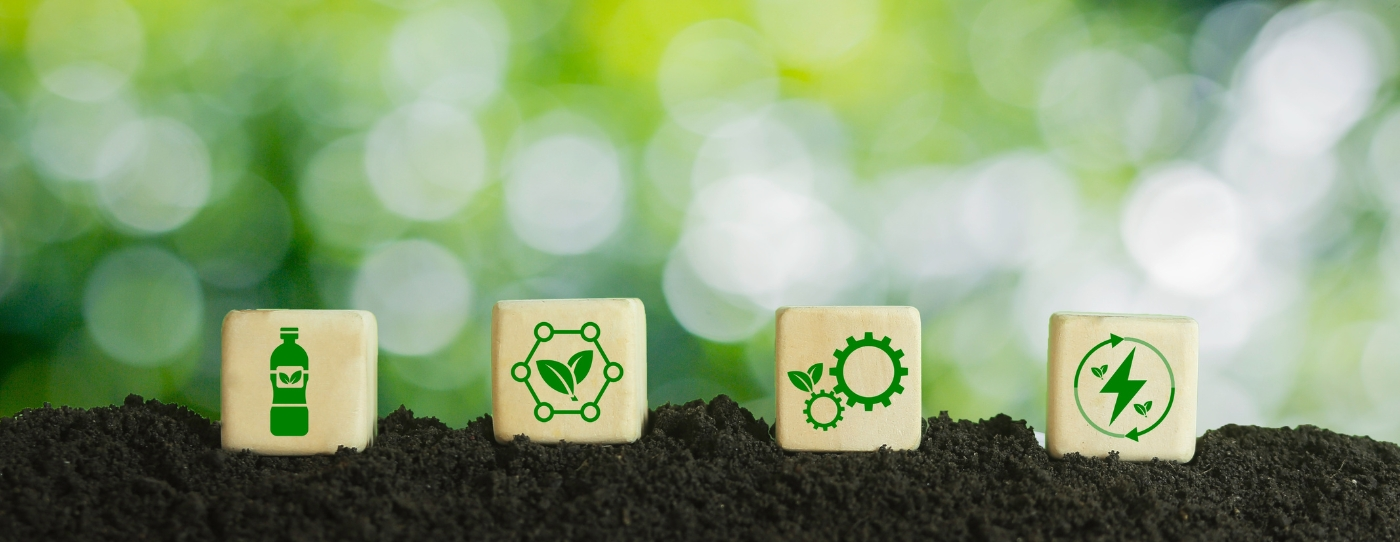
What petrochemicals can be sourced from biological materials, offering a sustainable and eco-friendly alternative?
Building a sustainable future is crucial today to ensure the well-being of societies and human health. The numerous problems caused by climate change, a global issue, mean that protecting the environment and preserving nature depend on the sustainable use of natural resources. In this regard, the contribution of large companies to sustainability is as important as the individual efforts we make.
Today, the demand for environmentally friendly and sustainable alternatives in the energy and industrial sectors is increasing. For this reason, research on petrochemical products derived from biological sources, alongside the traditional crude oil and natural gas-based production processes of the petrochemical industry, is becoming even more important.
What petrochemical products are derived from biological sources? Why is sustainable chemistry considered an important approach? In this article, we examine the answers to these questions.
What are petrochemicals and how are they obtained?
Synthetic materials derived from oil and natural gas are called "petrochemicals." Prof. Dr. James G. Speight, in his "Handbook of Industrial Hydrocarbon Processes" defines petrochemicals as follows: "Petrochemicals are chemical products derived from petroleum. Petrochemical production is based on the multi-stage processing of petroleum and associated petroleum gas." However, petrochemicals are not produced in just one way. Many of the same chemical compounds are produced from fossil fuels such as coal and natural gas, as well as from renewable sources such as corn, sugarcane, and other biomass types.
So, what petrochemical products are derived from renewable, biological sources? Take a look at bio-based petrochemicals, one of the most important building blocks of sustainable chemistry.
What are bio-based petrochemicals?
Biopolymers (Bio-plastics): Biopolymers hold a significant place among petrochemical products derived from biological sources. They are long-chain molecules formed by the repetitive addition of biomaterials and small molecules designed to interact with biological systems. These polymers are commonly used in medical systems and are typically produced from natural sources like corn, sugarcane, or potato starch. Also known as "bio-plastics," these materials replace petrochemical-based plastics, contributing to the reduction of plastic waste and environmental impact.
Additionally, greenhouse gas emissions during the production of bio-based polymers are generally lower.
Biodiesel: Biodiesel is another important petrochemical product derived from biological sources. Vegetable oils or animal fats can be converted into biodiesel through a chemical process called transesterification. By using biodiesel as a replacement for traditional diesel fuels, it can reduce dependence on fossil fuels and decrease carbon emissions into the atmosphere. Biodiesel is commonly used in various sectors such as transportation, agriculture, marine transportation, industrial heating, energy production, and home heating as an alternative to traditional petroleum-derived diesel fuel. Therefore, it can play a significant role in sustainable energy production.
“By using biodiesel as a replacement for traditional diesel fuels, it can reduce dependence on fossil fuels and decrease carbon emissions into the atmosphere.”
Bioethanol: Bioethanol is another type of biofuel derived from biological sources. Produced through the fermentation of plant-based sources, this alcohol can be used as an alternative to gasoline. Bioethanol, obtained from plants such as corn, sugarcane, or wheat, constitutes a wide range of biofuels. It is widely used in the transportation sector for blending with gasoline to create biofuel and for use in automobiles.
Biomaterials: Another example of materials derived from biological sources is biomaterials. Cellulose, bacterial cellulose, or fungal-based materials can be used as substitutes for petrochemical-based materials. These materials have various applications in many fields, ranging from packaging materials to textile products. For instance, biodegradable plastics can be used as packaging materials in daily life, offering eco-friendly options. Dentists can provide more natural and compatible options for dental restorations by using bioactive coatings and materials. Biomaterials are also known to be widely used in medical implants, prostheses, and suture materials.
Bio-based Cleaning Products: These cleaning products harness the power of enzymes derived from bacterial cultures. Unlike their chemical counterparts, bio-based cleaners are biodegradable and gentler on the environment. Their use is expanding across various industries, particularly in cleaning and hygiene, as a sustainable alternative. Examples include bio-detergents, probiotic cleaners with beneficial bacteria, cleaners using natural acids like lemon and vinegar, and plant-based cleaners.
In the petrochemical industry, engineers and researchers are actively seeking environmentally friendly and sustainable materials. Ongoing studies focus on deriving petrochemical-based materials like polyurethane and polyethylene from plant-based raw materials, biological waste, or other biological sources. Biodegradable polyurethane (bio-PUR) and biodegradable polyethylene (bio-PE) are examples of such bio-based polymers. Of course, it's important to note that the production of bio-based materials depends on various factors like cost and performance.
We embrace an eco-friendly approach and believe in sustainable chemistry
Petrochemicals are actually present in many products we use in our daily lives. We previously discussed this topic in our article "What are the Petrochemical Products We Use in Daily Life?" Petrochemical products derived from biological sources are important as they offer a more sustainable option with their environmentally friendly approach. By using our natural resources more effectively and efficiently, we can reduce the harm we cause to the environment and build a sustainable future with a more eco-friendly approach.
As SOCAR Türkiye we are investing in the use of bio-based raw materials and continuously advancing our efforts in this field. As part of our ongoing work, today, our bio-based ethylene, propylene, polyethylene, and polypropylene production processes using bio-naphtha are in their final stages.
At SOCAR Türkiye, we are committed to our responsibilities towards society and nature, and with an unwavering belief in a clean future, we aim to effectively manage our social, economic, and environmental impacts. We lead the way in supporting sustainable development worldwide, especially in the regions and sectors where we operate. Together with our group companies, we embrace our Sustainability Policy as a roadmap in every field we operate and support sustainable growth and development at every stage of our value chain.
We work with today's energy for a better tomorrow.